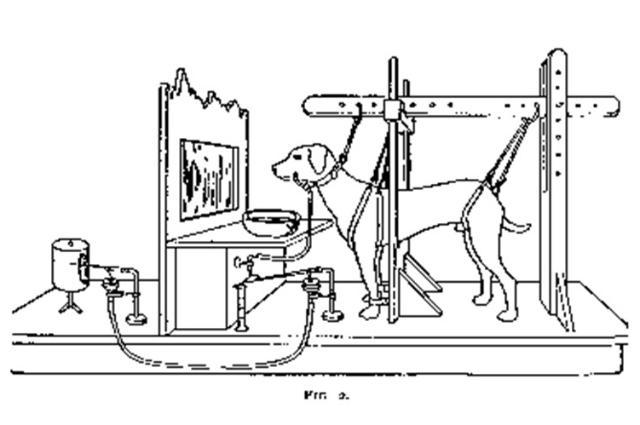The Pavlovian experiment, also known as classical conditioning, is one of the most famous psychological experiments in history, conducted by Ivan Pavlov, a Russian physiologist, in the late 19th and early 20th centuries. Pavlov's research initially focused on the digestive system of dogs, but his accidental discovery of classical conditioning revolutionized the field of psychology.
Pavlov observed that dogs naturally salivated when presented with food. He began to experiment by ringing a bell (neutral stimulus) before presenting food (unconditioned stimulus) to the dogs. After repeated pairings of the bell and the food, the dogs began to associate the bell with the arrival of food. Eventually, the bell alone elicited a salivary response even when no food was present.
The dogs had learned to associate the bell with the food and began to salivate in response to the bell alone. This response, which was originally triggered only by the food, became known as the conditioned response. Pavlov's experiment demonstrated that behaviors could be learned through association. In classical conditioning, a neutral stimulus becomes associated with a meaningful stimulus and produces a similar response. This laid the groundwork for understanding many aspects of human and animal behavior, including phobias, advertising, and even addiction.

